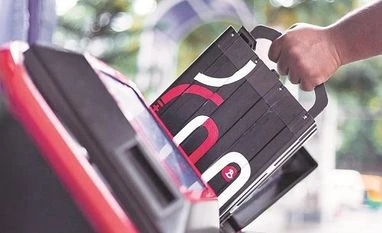After much resistance from the electric vehicle (EV) manufacturing industry, the Centre has extended the deadline for implementation of the new battery testing standards, which were enforced amid rising cases of EV fires across the country.
The standards, which were earlier supposed to be implemented by October 1, will now be rolled out in two phases — December 1, 2022, and March 31, 2023. Union Minister for Road Transport Nitin Gadkari had reportedly met EV makers last week to discuss the issue.
The much-awaited new regulations were introduced on August 29 after an expert committee constituted by the ministry of road transport and highways had found severe defects in manufacturing practices by EV makers to be the cause of the fires, which, in some cases, had led to injuries and deaths. Manufacturers, while supporting the need for reform, had called the implementation deadline unrealistic.
Sohinder Gill, director-general of the Society of Manufacturers of Electric Vehicles (SMEV), and chief executive officer of Hero Electric, thanked the government for accepting the SMEV’s request to implement the new battery standards in a phased manner.
The standards laid down by the government are very important and they will further enhance the safety quotient of the products, Gill said.
The proposed standards necessitate changes in battery design, hence, the extension of the timeline will allow manufacturers to work on new design and development and do rigorous testing to ensure effective implementation, he said.
“We are requesting all the EV battery manufacturers to immediately draw a plan to implement the new standards as per the policy guidelines so as to ensure that they gear up their capabilities and capacities to ensure sufficient quantities of safer batteries to meet the exponential demand of EVs,” he stated.
Experts and sector leaders had said the new regulations required changes to be made to battery design and other crucial aspects, which was not possible in as little as a month. The new safety rules will cover key components of the battery system — cells, onboard charger, battery pack design, and thermal propagation, which can lead to internal cell short circuits causing a fire in the vehicle.
According to the Federation of Automobile Dealers Associations, the sale of electric vehicles jumped from 134,821 units in FY21 to 429,217 units in FY22.
Norms related to the presence of pressure release vents in rechargeable batteries, which help the gases to release in case there is a short circuit, will have to be implemented in phase 1, according to MoRTH’s notification.
Norms related to sufficient cell-to-cell spacing inside the rechargeable battery, additional safety fuse inside the rechargeable battery, and charger having a charge voltage cut-off so as to avoid over-charging the battery will also be implemented in the same phase.
The December deadline also includes implementation of norms related to the battery management system — which keeps an oversight of the battery — which will have to maintain the data about the critical parameters of the battery pack for at least one month, the notification said. Alternatively, this critical data can be stored on a remote server for at least one month, it added.
Unlock 30+ premium stories daily hand-picked by our editors, across devices on browser and app.
Pick your 5 favourite companies, get a daily email with all news updates on them.
Full access to our intuitive epaper - clip, save, share articles from any device; newspaper archives from 2006.
Preferential invites to Business Standard events.
Curated newsletters on markets, personal finance, policy & politics, start-ups, technology, and more.
)